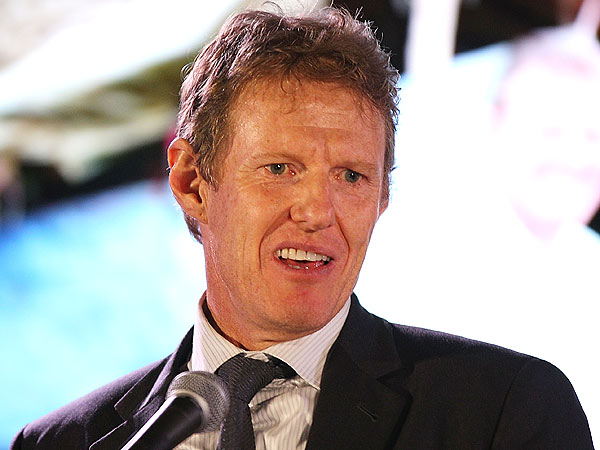But after he stepped into a nightmare in Cambodia's Steung Meanchey garbage dump in December 2003, he walked away from all his wealth to help some of the poorest children in the world.
At the dump in the Cambodian capital of Phnom Penh he saw a girl, dressed in rags, picking through syringes and broken glass. Her name, Neeson learned through an interpreter, was Srey Nich. She was 9 and lived in the dump with her mother and younger sister; there they collected scraps, which they sold for money to buy food.
"How could anyone survive here?" Neeson recalls thinking. "I couldn't look away."
So, Neeson, 53, gave up his Hollywood life and never looked back. Once president of 20th Century Fox International, overseeing films from Titanic to X-Men, the Scottish-born executive drove a Porsche and lived in ritzy Brentwood.
Today, he lives in a two-story home that doubles as office space for his nonprofit Cambodian Children's Fund. Since 2004, Neeson's charity has helped house, educate and provide health care for more than 1,450 children in the country's most desperate slums.
"Scott is a remarkable human being who put his life on the line to help children in Cambodia who had no hope," says Dr. Jay Winsten, associate dean of the Harvard School of Public Health. "Now they have a future."
Neeson says that his life is better now because of his decision.
"I miss a lot of things about Hollywood." he says, "but I wouldn't change this for the world."
Poverty To Riches
Neeson never imagined much of a future for himself. Growing up in a working-class neighborhood in Elizabeth, Australia, where his father worked for the Department of Defense and his mother as a cleaning lady, he was a frail kid, unhappy both at home and in school."A lot of teachers said I'd be unemployed, spend my life on welfare," he says.
He dropped out of high school and found work delivering movie posters to theaters, working his way up to projectionist and then assistant to the director of movie programming, eventually landing the position of managing director at an Australian film distributor that later merged with Sony. By 1993 he was vice president of international marketing for Fox and moved to America, ultimately being promoted to president in 2003.
"Scott was a major driving force," says former Fox colleague Gina Kilberg, now senior vice president of international media at Sony. "He was very motivated to be successful."

Scott Neeson at a fundraiser for his organization in 2012
Joe Scarnici / Getty
Life-Changing Trip
The excesses of that life came into sharp focus on his second trip to Phnom Penh just a few months after his first. He had returned to the dump and was trying to help three sick children when he got a call on his cell phone. It was an agent whose star client was having a meltdown before boarding his private jet because it wasn't properly stocked with his favorite amenities."The actor said, 'My life wasn't meant to be this difficult.' The kids I was with were very sick and here's this movie star yelling," says Neeson. "If I needed a sign, that was it."
These days Neeson (who's lived in Cambodia for the past 10 years) is as driven as he ever was, only about different things. He starts work at dawn with a cup of coffee from his espresso machine – his one luxury – and leaves the country only for fund-raising trips. He uses his formidable negotiating skills to persuade desperate and starving parents to enroll their kids in his school or bring a sick baby to his clinic.
"I guess I identify with [the kids] never believing they could do anything with their lives," he says. "They've been through so much, but they're so hugely energetic and joyful. I've got more love in my life than I ever thought existed. My fear is what would have happened to me if I was still living a life all about me."
For the road he did take, Neeson only need thank Srey Nich, that first little girl from the dump. Using his own money, Neeson got Srey Nich and her family out of the now-closed dump and into a house. She then became one of the original students at Neeson's CCF school. Today, 18 years old and planning for college next year, she says Neeson changed everything for her.
"The dump was a very bad, dirty place," she says. "Now my life has changed. I can speak English with you, I have the opportunity to go to school. Everything is different."
How He's Helping
• More than 1,450 students attend the school, which supplements public education – and nearly all stay on.• After learning cooking and customer-service skills, about 100 students have landed jobs in restaurants and hotels.
• Three full-time doctors and seven nurses treat more than 3,000 patients a month at the free medical clinic.
Know a hero? Send suggestions to heroesamongus@peoplemag.com. For more inspiring stories, read the latest issue of PEOPLE magazine









